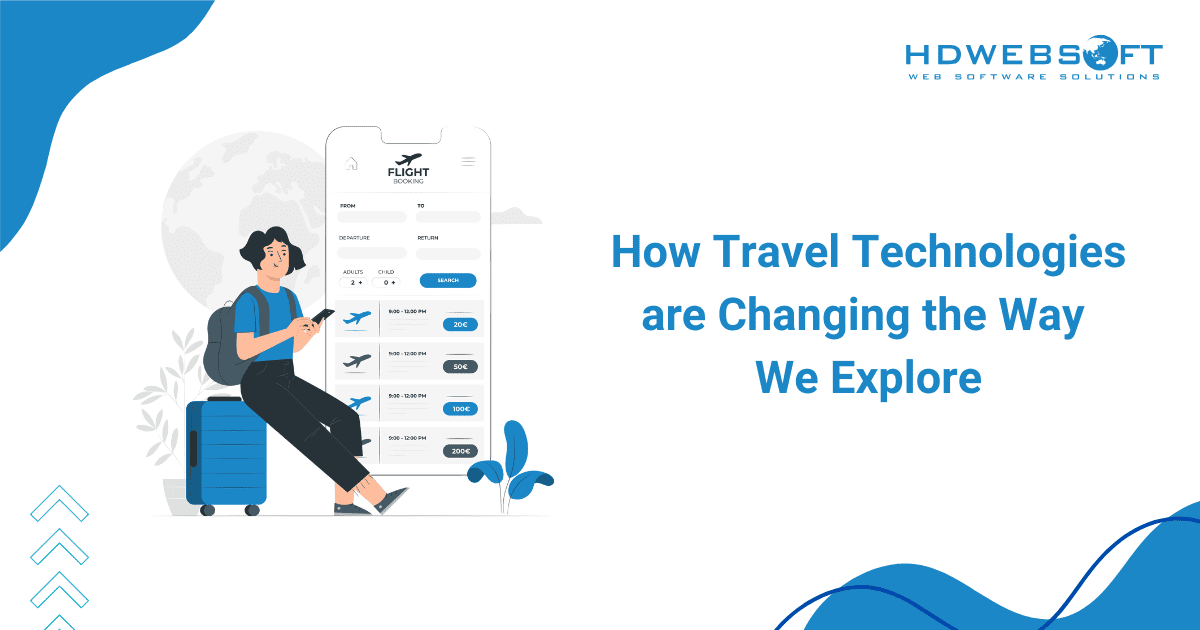
How Travel Technologies are Changing the Way We Explore
Travel technologies have revolutionized the travel industry, unlocking new possibilities and delivering unparalleled convenience for both travelers and businesses. With advancements that simplify bookings and enhance overall experiences, these technologies have transformed the way we journey across the globe.
For today’s writing, we’ll dive into what travel technology encompasses and its growing market size. Along with that, we’ll explore the latest innovations shaping the industry and the exciting potential it holds for the future.
What is Travel Technology?
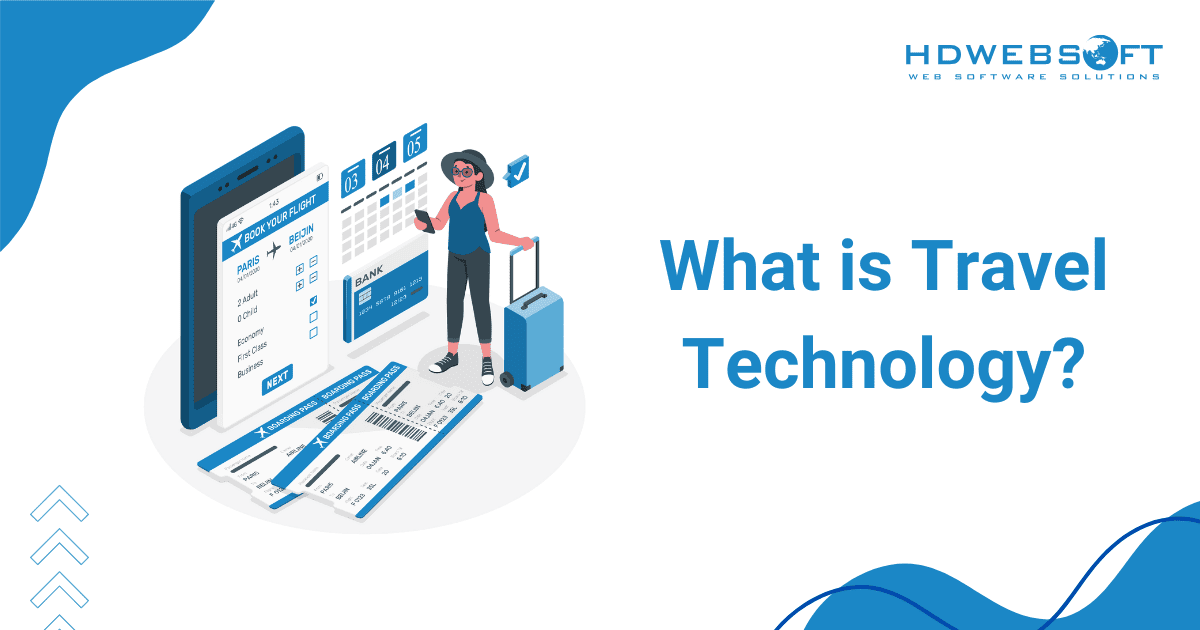
Travel technology refers to the use of advanced tools, systems, and software that facilitate travel planning, management, and experiences. These technologies support various sectors, such as hospitality, transportation, and tourism. Additionally, they span multiple applications, including online booking platforms, AI-powered travel assistants, and tools for managing complex logistics in tourism.
For travelers, these innovations provide convenience and personalization. For businesses, they streamline operations, improve decision-making, and enhance customer satisfaction. Together, they form the backbone of a dynamic and fast-evolving industry.
How Big is the Travel Technology Industry?
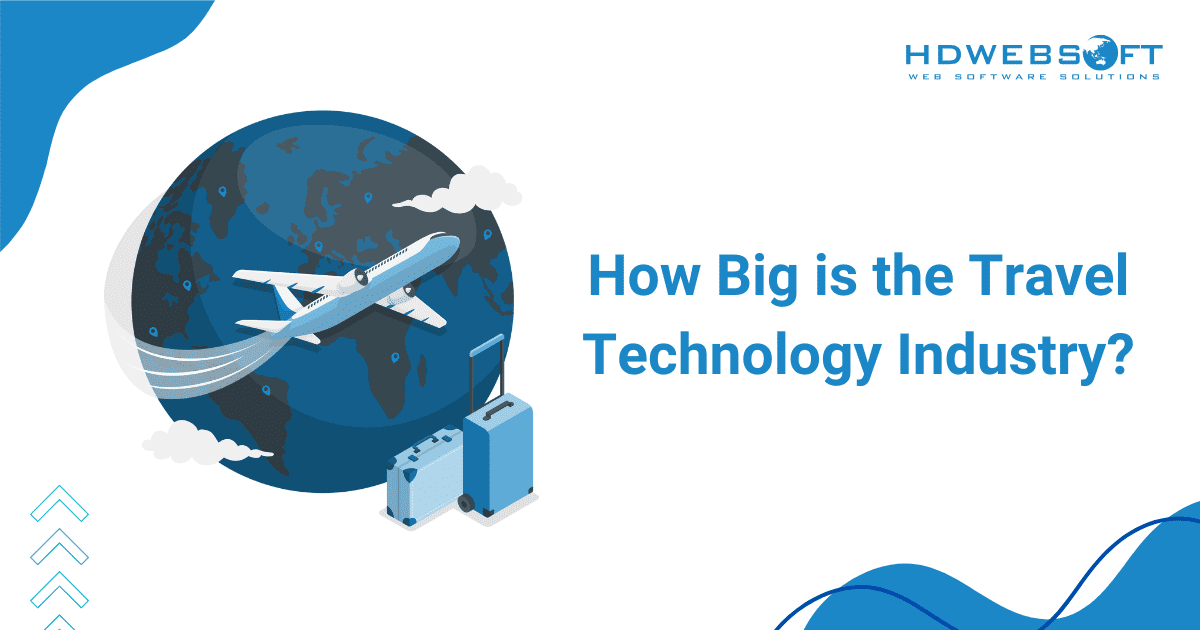
The travel technologies market has seen remarkable growth, underpinned by advances in automation and connectivity. The global travel technology market is projected to reach $6288.4 million during 2024-2029, with a CAGR of 9.5%.
One key driver is the adoption of innovations like voice search, augmented reality (AR), and virtual reality (VR). For instance, AR and VR are widely used to provide immersive travel experiences even before booking a trip. Additionally, contactless payment systems have significantly streamlined processes, especially in the post-pandemic era. These trends illustrate how travel technologies are reshaping the industry’s landscape.
With increasing reliance on digital platforms and smart tools, the travel technology sector is undergoing significant transformation. As a result, it continues reshaping the global travel ecosystem. In particular, these advancements are enhancing convenience and improving the overall experience for travelers.
Current Travel Technologies Used in Travel and Tourism
The travel and tourism industry thrives on innovation, with travel technologies transforming how services are planned, delivered, and experienced. From streamlining bookings to enhancing customer satisfaction, these technologies are essential for staying competitive. Below are some key technologies reshaping the industry:
Travel Agency Software
One of the most popular travel industry technologies is travel agency software. It’s vital for modern agencies to manage bookings, itineraries, and payments efficiently. Moreover, this software integrates various tools to simplify tasks like comparing flight options, hotel availability, and car rentals in real-time. Additionally, advanced solutions include automation features, which help in reducing manual effort and minimizing errors.
Furthermore, such systems often come with customer relationship management capabilities, enabling personalized travel recommendations based on past behavior. They also include analytics for insights into customer preferences and market trends, enhancing decision-making. As demand grows for smoother operations, travel agency software ensures agencies can meet client expectations and simultaneously improve internal workflows.
Tour Operator Software
Nowadays, tour operators rely on travel technologies and specialized software to handle the complexities of managing group tours, custom itineraries, and travel packages. It’ll automate tasks such as pricing, scheduling, and resource allocation, thereby freeing up time to focus on enhancing customer experiences.
In addition, tour operator software typically supports multi-currency transactions, dynamic pricing models, and real-time inventory management. With features such as customer portals and mobile accessibility, it makes sure that travelers stay informed and connected. Moreover, these systems integrate with payment gateways, simplifying financial transactions while also ensuring data security.
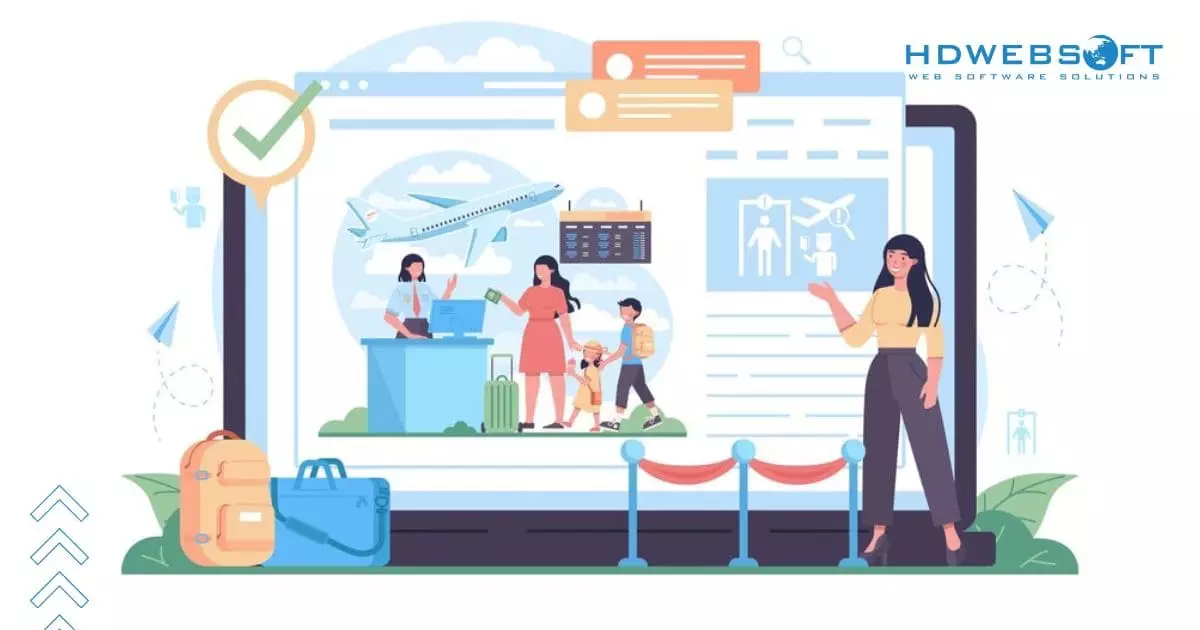
Tour operator software is the second most popular travel technology for a good reason.
Blockchain Hotel Booking Technology
Blockchain used to be just a trend, but it is now a common practice in every industry, including financial services, hospitality, and travel. The technology is revolutionizing hotel bookings by offering enhanced transparency, security, and efficiency. Unlike traditional booking systems that rely on intermediaries, blockchain allows for peer-to-peer transactions, reducing costs and boosting trust.
This kind of travel technologies stores booking data on a decentralized ledger, ensuring accuracy and eliminating disputes over reservations. In addition, it supports smart contracts, which automatically execute agreements once predefined conditions are met. For travelers, blockchain offers a more secure and efficient booking experience, while hotels benefit from reduced commission fees and streamlined processes.
B2B/B2C Travel Portals
Next on the list are travel portals, which cater to both businesses (B2B) and consumers (B2C). In particular, they act as a one-stop solution for booking flights, accommodations, and other travel services. These portals provide a user-friendly interface for browsing options, comparing prices, and completing transactions.
For starters, B2B portals enable travel agencies and corporate clients to access bulk discounts and manage group bookings effortlessly. On the contrary, B2C portals focus on providing a frictionless customer experience with features like personalized offers and loyalty programs. By bridging the gap between suppliers and end-users, travel portals are central to the industry’s digital transformation.
XML API Integration
Lastly, we have XML API integration, which stands out as one of the most exciting travel technologies. In particular, this travel industry technology is crucial for connecting various travel services into a unified platform. It allows systems to communicate effortlessly, sharing data such as flight availability, hotel rates, and car rental options in real-time.
For example, a travel agency’s booking platform can use APIs to fetch and display options from multiple suppliers. This ensures that travelers get the best deals without the need to visit multiple websites.
In addition, this integration supports dynamic pricing and instant confirmations, enhancing customer satisfaction. As the backbone of many travel technology solutions, XML API integration ensures interoperability and scalability for growing businesses.
How Has Technology Improved Transportation and Travel?
The integration of travel industry technology has revolutionized how people explore the world. From faster transportation options to user-friendly digital tools, technology has transformed travel into a more efficient and personalized experience. Let’s dive into the ways technology has improved transportation and travel.
Streamlined Booking and Planning
Gone are the days of standing in long queues or consulting travel agents for basic arrangements. Now, online platforms powered by cutting-edge travel technologies allow travelers to plan and book everything with just a few clicks. What’s more, mobile apps and websites equipped with AI-driven algorithms suggest personalized itineraries, optimizing trips based on individual preferences.

Planning and booking trips have never been easier with travel technologies.
For example, airline websites and apps provide real-time flight updates and alerts, reducing stress and uncertainty. Map apps like Google Maps offer navigation and public transport options, helping tourists explore new destinations confidently.
Faster and Smarter Transportation
High-speed trains, smart airports, and ride-sharing platforms are all examples of how technology has accelerated travel. High-speed rail systems, like Japan’s Shinkansen, have drastically reduced travel times between cities. Smart airport technologies, including facial recognition and automated check-ins, have minimized delays and streamlined passenger experiences.
Moreover, ride-sharing services like Uber and Lyft have added convenience to last-mile connectivity, allowing travelers to reach their destinations efficiently. Additionally, autonomous vehicles are being tested, promising even greater advancements in the near future.
Improved Safety and Communication
Safety is paramount in transportation, and travel technologies have contributed significantly to making travel safer. GPS tracking, predictive analytics, and IoT sensors help monitor vehicle performance and prevent accidents. Besides, airlines use predictive maintenance to identify potential mechanical issues before they cause delays or safety concerns.
Moreover, communication tools like real-time translation apps have made it easier for travelers to navigate foreign destinations. These apps bridge language gaps, ensuring smoother interactions with locals and service providers.
Enhanced Comfort and Accessibility
Travel has become more comfortable and inclusive thanks to travel industry technologies. In particular, smart seating arrangements on flights, personalized entertainment systems, and free in-flight Wi-Fi make journeys enjoyable. In addition, innovations like mobility apps for disabled travelers and AI-powered virtual assistants ensure that travel is accessible to everyone.
On top of that, the Internet of Things (IoT) has also transformed hotel stays. This implementation of travel technologies allows travelers to control room settings through smartphones or voice commands. Even better, smart luggage equipped with GPS tracking will make sure that travelers no longer lose their belongings.
Environmental Sustainability
Technology has provided us with eco-friendly travel options, helping reduce the environmental impact of tourism. Electric and hybrid vehicles are becoming more prevalent, offering sustainable alternatives to traditional fuel-based transportation. In addition, airlines are adopting biofuels and experimenting with energy-efficient designs to minimize carbon emissions.

Travel technologies allow for a sustainable environment.
Moreover, smart transportation systems reduce fuel wastage by optimizing traffic flow. According to the International Air Transport Association (IATA), the airline industry is working to achieve net-zero carbon emissions by 2050.
Data-Driven Insights
Today, many travel brands are embracing data analytics to optimize customer service and streamline operations. Big data analytics have empowered transportation and travel providers to make informed decisions. By analyzing traveler behavior, airlines and hotels can adjust pricing strategies, predict demand, and offer customized deals.
In short, this strategic use of travel technologies not only enhances the traveler experience but also drives profitability across the industry.
What is the Future of Travel Technologies?
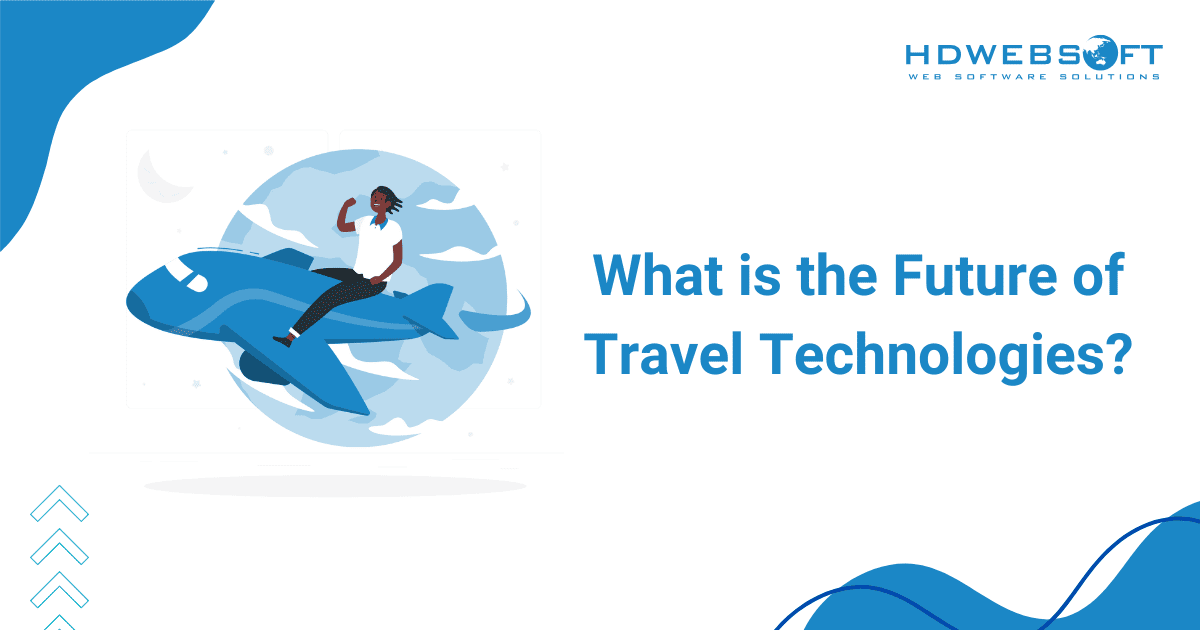
The future of travel industry technology is set to reshape how people explore the world, bringing unparalleled convenience, personalization, and sustainability. By 2025, the industry will see transformative trends that align with evolving traveler expectations and technological advancements. Here’s a glimpse into the upcoming innovations poised to redefine the travel landscape.
Artificial Intelligence
In the years ahead, AI will become an indispensable part of travel, empowering companies to deliver hyper-personalized experiences. Specifically, advanced AI systems will analyze vast amounts of customer data to tailor recommendations for accommodations, destinations, and activities. Virtual assistants like chatbots will evolve to include voice capabilities, ensuring real-time, human-like interactions.
Furthermore, AI-driven predictive analytics will help providers leverage travel technologies to anticipate customer preferences, optimize pricing, and manage resources efficiently. For instance, airlines will use AI to forecast demand and reduce flight delays, enhancing traveler satisfaction. Moreover, AI-powered translation tools will also bridge language barriers, enabling frictionless global travel.
Virtual Reality and Augmented Reality
VR and AR will redefine pre-travel planning by providing immersive experiences. For example, travelers will virtually explore destinations, hotels, and attractions before making bookings, thereby enhancing decision-making. Additionally, AR-enabled apps will act as real-time travel guides, offering interactive maps, historical facts, and language translation.
Furthermore, in-flight entertainment will also leverage VR, allowing passengers to enjoy immersive content during their journey. As technology continues to advance, VR and AR will blur the lines between virtual exploration and real-world experiences. After all, it’s always enticing for travelers to discover new places.
Internet of Things (IoT)
The IoT will further enhance connectivity and convenience in travel technologies. Smart airports will use IoT sensors to streamline operations, such as automated check-ins and baggage handling. By then, travelers can control hotel room settings, like lighting, temperature, and entertainment systems, via mobile apps or voice commands.
Plus, IoT will play a significant role in transportation. Connected vehicles will provide real-time traffic updates, route optimization, and safety alerts. The integration of IoT devices across transportation and hospitality will make every aspect of the journey more efficient and enjoyable.

Even vehicles can also be connected to IoT as a part of travel technologies.
Big Data
Big data analytics will continue to revolutionize the travel industry by offering deep insights into customer behavior and preferences. Travel companies will use this data to develop predictive models, personalize offers, and optimize marketing strategies.
For instance, airlines could analyze booking trends to introduce targeted promotions. Meanwhile, hotels may use data to predict peak seasons and adjust pricing dynamically. With the rise of travel technologies, more and more travel brands will increase their investment in data analytics. It’s clear that big data will drive smarter decision-making across the sector.
NFTs Enter the Travel Industry
Non-fungible tokens (NFTs) will find their way into the travel ecosystem, offering new ways for travelers to engage with brands. To illustrate, NFT-based loyalty programs may allow travelers to earn unique digital assets that can be traded, redeemed, or showcased.
In addition, hotels and airlines might use NFTs to offer exclusive experiences, such as virtual tours or limited-edition perks. Moreover, these digital collectibles could also be tied to proof of travel. Therefore, tourists are given a way to immortalize their journeys in the blockchain space.
Self-Driving Vehicles
Autonomous vehicles will revolutionize ground transportation, offering safer, faster, and more eco-friendly travel options. Self-driving cars and shuttles will become common for airport transfers and city tours, thereby reducing the need for human drivers.
Additionally, these vehicles will incorporate AI, IoT, and other travel technologies to provide customized experiences. It could be personalized playlists, real-time navigation updates, or whatever the customer needs. On top of that, self-driving buses could enhance group travel by offering cost-effective and reliable alternatives to traditional transportation.
Conclusion
Travel industry technology has truly redefined the way we explore the world, offering convenience, personalization, and safety. As the industry evolves, the integration of AI, IoT, VR/AR, and sustainable practices will continue to shape its future. With innovations on the horizon, travel technologies promise to make journeys even more memorable, efficient, and impactful.
As a trusted travel software provider, HDWEBSOFT is at the forefront of these advancements, offering cutting-edge solutions tailored to the evolving needs of the travel industry. Our expertise in developing intuitive and scalable travel technologies helps businesses stay competitive in a rapidly changing market. The world is just a click away, and technology is making every journey smoother and more exciting than ever before.









